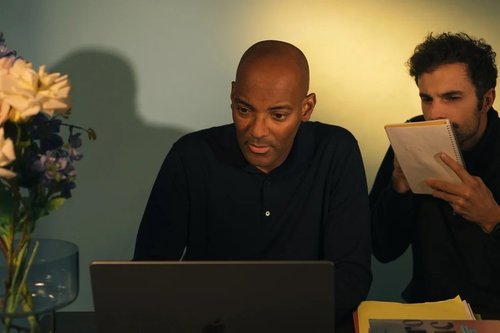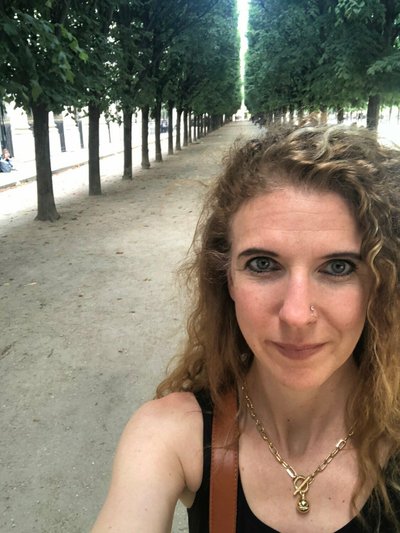Finding your Genius Zone … and staying there
Jul 10, 2024
4 mins

Are you seen as the virtuoso at work? As a master of the keyboard? The Maestra of the office? If not, maybe you just haven’t found your “genius zone” yet, a place where you naturally excel, accomplishing professional feats with disconcerting ease and joy. This sounds great, but is it a myth? If not, how can we access the “genius zone” and stay there?
A trend or reality?
The concept of the “genius zone” made a sensational entry into the field of personal development in 2010, thanks to Gay Hendricks and his book “The Big Leap.” According to the author, the genius zone is “the intersection of your unique talents, passions, and strengths.” It’s the art of “engaging in work in which you have a natural gift, using innate rather than acquired skills.”
Nearly a decade and a half later, the genius zone has withstood the tides of personal and professional development trends. While some may criticize Hendrick’s idea for its rigidity, question its universality, point out its almost naive sincerity, and accuse it of being far from the concrete realities of the professional world, few critics dare to openly oppose the concept.
Whether we’re desperately searching for our “ikigai,” “dharma,” or “logos,” we’re trying to find our way. The genius zone is a space where it’s possible to find meaning and shine with ease and where work is no longer synonymous with drudgery. So, how do we uncover our “genius zone?”
Realizing your genius zone
We might ask ourselves, does everyone have a genius zone? Or are some of us destined to wander through the twists and turns of mediocrity, stuck with an incomplete Excel formula, glassy eyes, and a cold coffee in hand? For Hendricks, the answer is no. The genius zone exists for everyone, but the key is to engage in honest introspection to discover it.
According to Hendricks, there are four zones: incompetence, competence, excellence, and genius. The excellence and genius zones translate into work that allows us to shine without effort; however, the difference is that the excellence zone might offer little or no satisfaction. Maybe you’re an inspiring project manager, praised for your tenacity and organizational skills, but you find limited fulfillment in this role. You envy a creative position you supervise because you know that job would suit you better. What if your genius zone lies there in the creative job? Unfortunately, many employees would remain in the excellence zone in this scenario, convinced they’ve reached their potential and would never cross over to the genius zone.
What prevents modern-day workers from achieving their Holy Grail? In the opening chapters of “The Big Leap,” Hendricks explores the universal paradox of an innate resistance to happiness, revealing how fear, whether of realizing one’s full potential, experiencing rejection, or facing failure, would hinder this quest. Everyone would have an “internal thermostat” that would determine the level of love or success we enjoy. Once that level is reached, we would self-sabotage, allowing ourselves to return to a comfort zone where we feel safe.
Before we can discover our genius zone, it’s a matter of dissipating the oppressive power of these fears and a glass ceiling produced by the feeling of imperfection. We have a fear of disloyalty, abandonment, success, or even a reluctance to eclipse others.
After letting go of these fears, it’s possible to ask yourself with sincerity, what do you like to do for a long time without feeling bored or tired? What talent sets you apart from others?
Ideas to guide your reflection
- Identify your passions and interests. Explore what excites you and makes you tick. Taking career questionnaires, self-assessments, and skills tests allows you to explore your preferences and values.
- Recognize your talents and strengths. Identify your natural skills and what you do exceptionally well. You could organize your own 360° assessment by asking coworkers and loved ones about the qualities they see in you.
- Reflect on past wins. Keep a journal to document times when you feel particularly fulfilled and analyze the skills and circumstances contributing to these successes.
- Overcome limiting beliefs. Identify and transform negative thoughts that hinder your exploration of new opportunities. Sometimes, it’s important to consider coaching or cognitive behavioral therapy tools to identify and transform these beliefs.
- Develop your vision. It’s time to grab a pencil and paper. Use visualization techniques, create a vision board, or write a letter to your future self describing your ideal life. Imagine your dream life and career. Add details and use this vision casting as a compass.
- Make sure your goals and values are aligned with your genius zone. Create a “values map.” Take out a sheet of paper and list your values, then rank them in order of importance. Explore the connection between these values and the vision you’ve created. Do they form a coherent whole? If so, you’re on the way to realizing your genius zone.
- Finally, “take action,” Hendricks recommends. Once you’ve identified your genius zone and aligned your vision, take concrete steps to achieve your aspirations. “Get out of your comfort zone and seize the opportunities that will lead you to abundance and happiness.”
Find your genius zone and stay there
Finding your genius zone is one thing, but staying and thriving in it is another. Hendricks informs his readers of the tendency to backslide into other zones and shares strategies for holding onto their genius zone.
- Practice the unenlightened. Learn to say “no,” as this creates a shield against nonaligned influences. For example, if a coworker offers you an important project that would eat into the time you have planned for a less critical project but one that aligns more with your long-term vision, say “no.” Focus on work that allows you to leverage your talents and keeps you on track with your goals. Avoid tasks that don’t contribute to your genius zone, although this is easier said than done.
- Accept support. Hendricks emphasizes the importance of accepting help from others in areas outside of your genius zone. For example, delegate tasks that don’t match your strengths when possible.
- Move from “Newtonian time” to “Einsteinian time.” Time is often a source of stress. Hendricks encourages us to stop using “lack of time” as an excuse; it’s our responsibility to create time and manage it. Living in Einsteinian time means recognizing that everyone has the same 24 hours in a day; taking ownership of that time is essential for success.
- Whether we’re believers or not, pursuing our “genius zone” is a worthy journey that leads to a path of lasting success and happiness. Hendricks reminds us that it’s not a question of finding our zone and forgetting the rest but of maximizing our overall potential without sacrificing other skills we possess.
Photo: Welcome to the Jungle
Follow Welcome to the Jungle on Facebook, LinkedIn, and Instagram and subscribe to our newsletter to get our latest articles every week!

More inspiration: Productivity & tools

Goal setting: How to bounce back when you feel like a failure
The big F word ... Failure. We all face it, but here’s how to make it your secret weapon for success.
Dec 18, 2024

Productivity boost: Why mental health outshines long hours
Long hours don’t equal better work. Discover how mental health support can unlock productivity and time efficiency in the workplace.
Nov 28, 2024

10 fun ways people are using AI at work
While many use AI for basic tasks like grammar checks or voice assistants, others are finding innovative ways to spice up their work days.
Nov 05, 2024

12 Slack habits that drive us crazy
Slack is a top messaging platform, but coworkers can misuse it. Over-tagging and endless messages can make it frustrating ...
Oct 16, 2024

10 CareerTok creators you should be following
Looking for career advice? CareerTok has quick tips from real experts on interviews and job offers.
Sep 25, 2024
The newsletter that does the job
Want to keep up with the latest articles? Twice a week you can receive stories, jobs, and tips in your inbox.

Looking for your next job?
Over 200,000 people have found a job with Welcome to the Jungle.
Explore jobs

